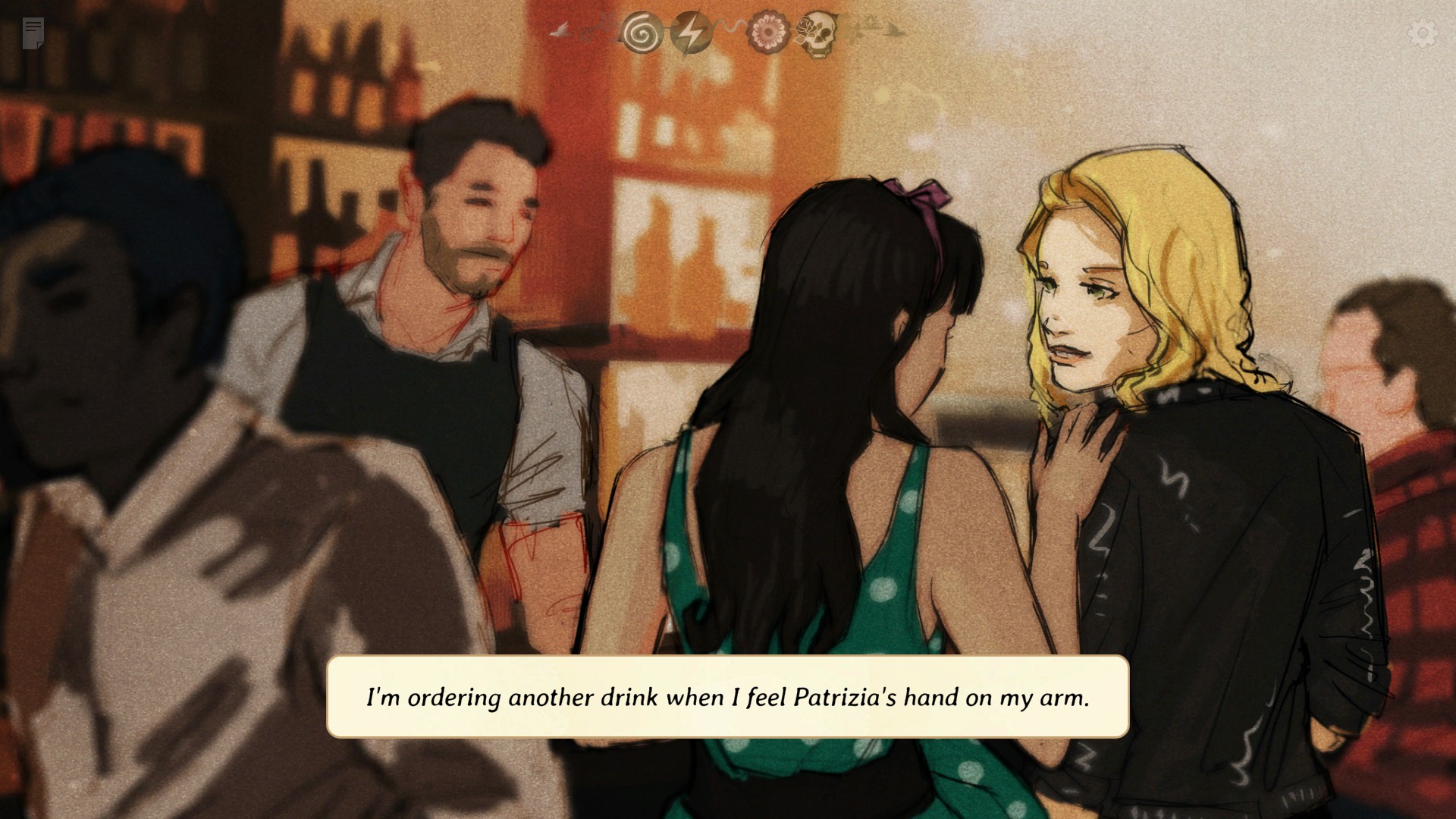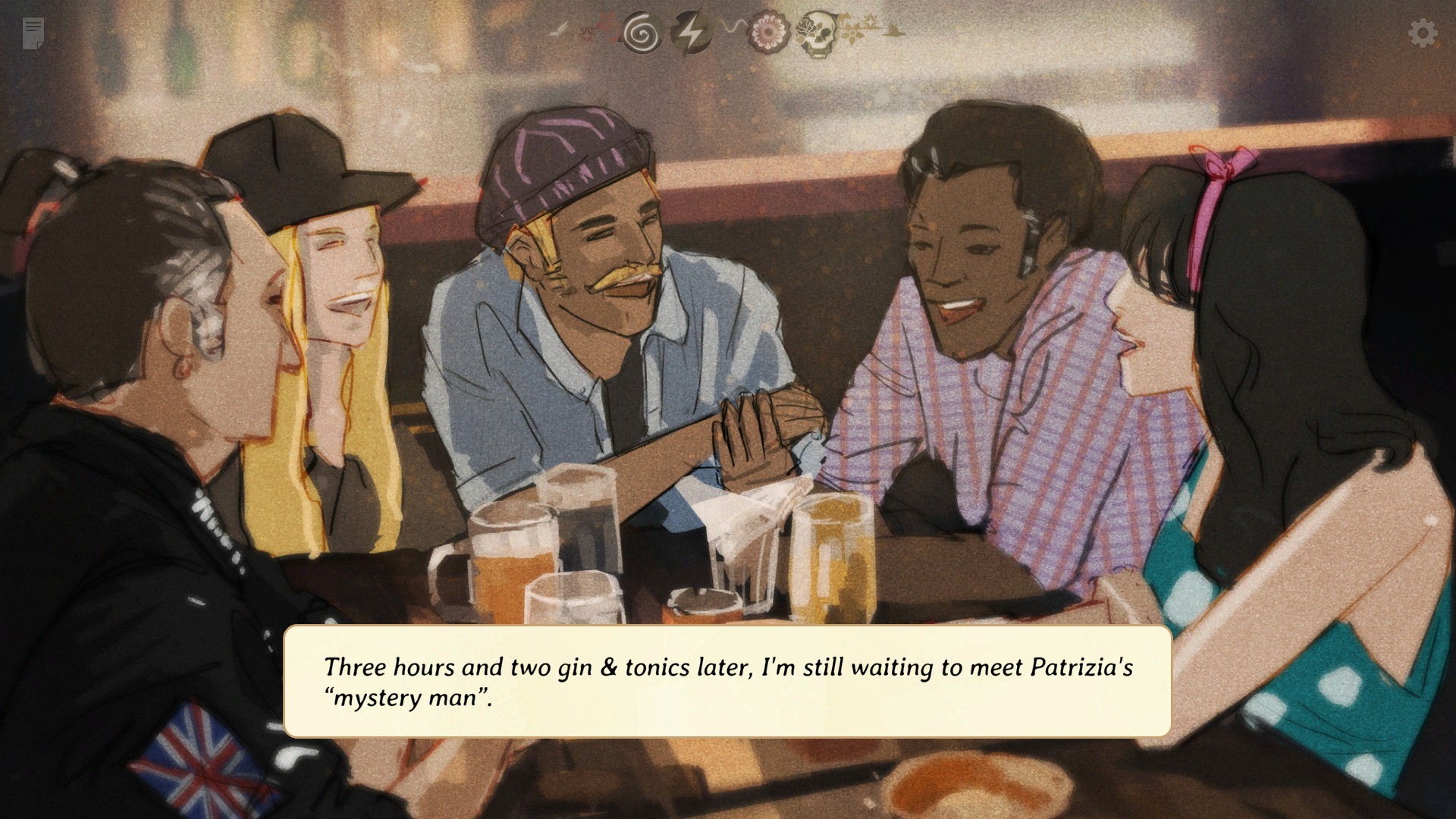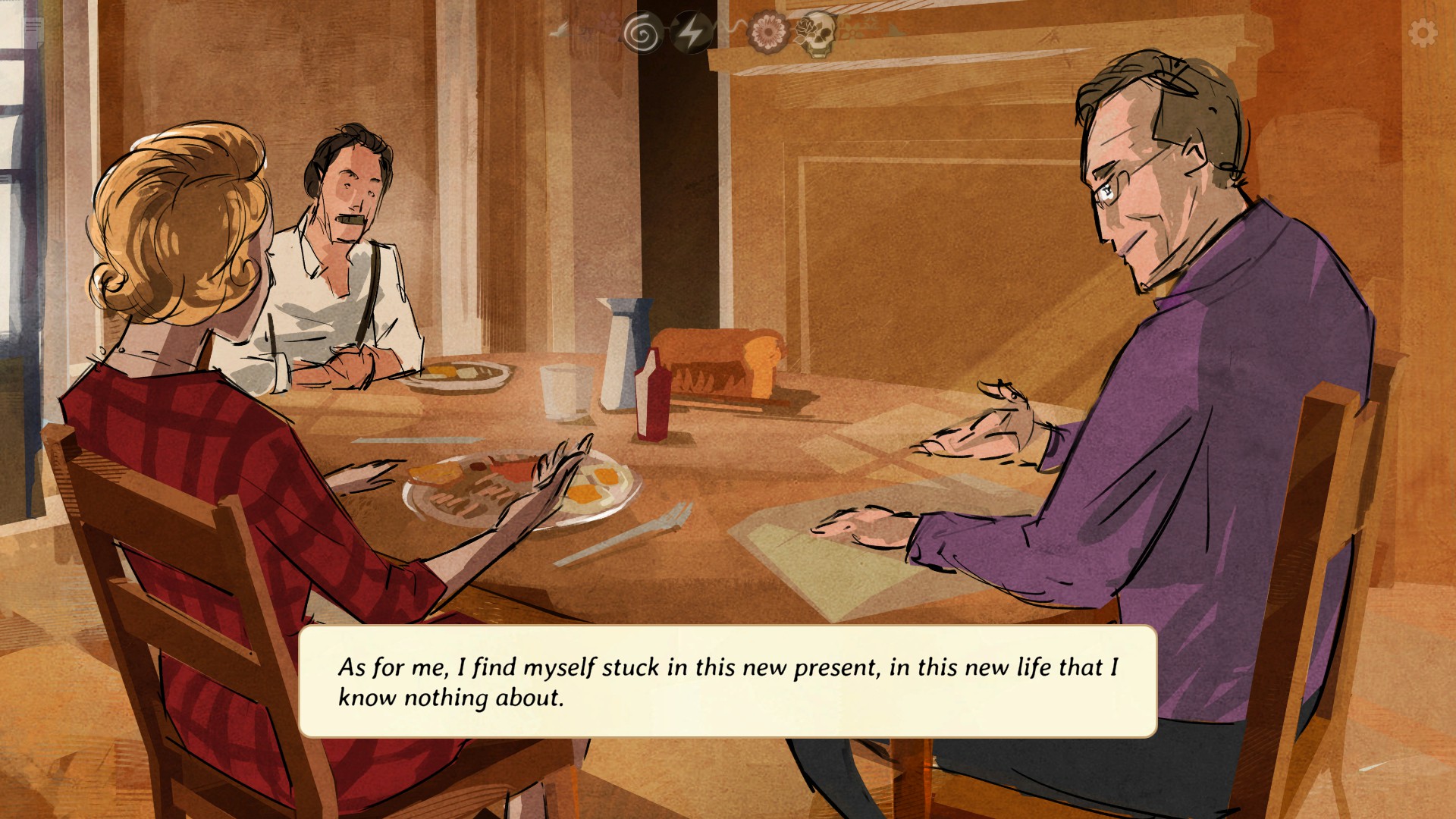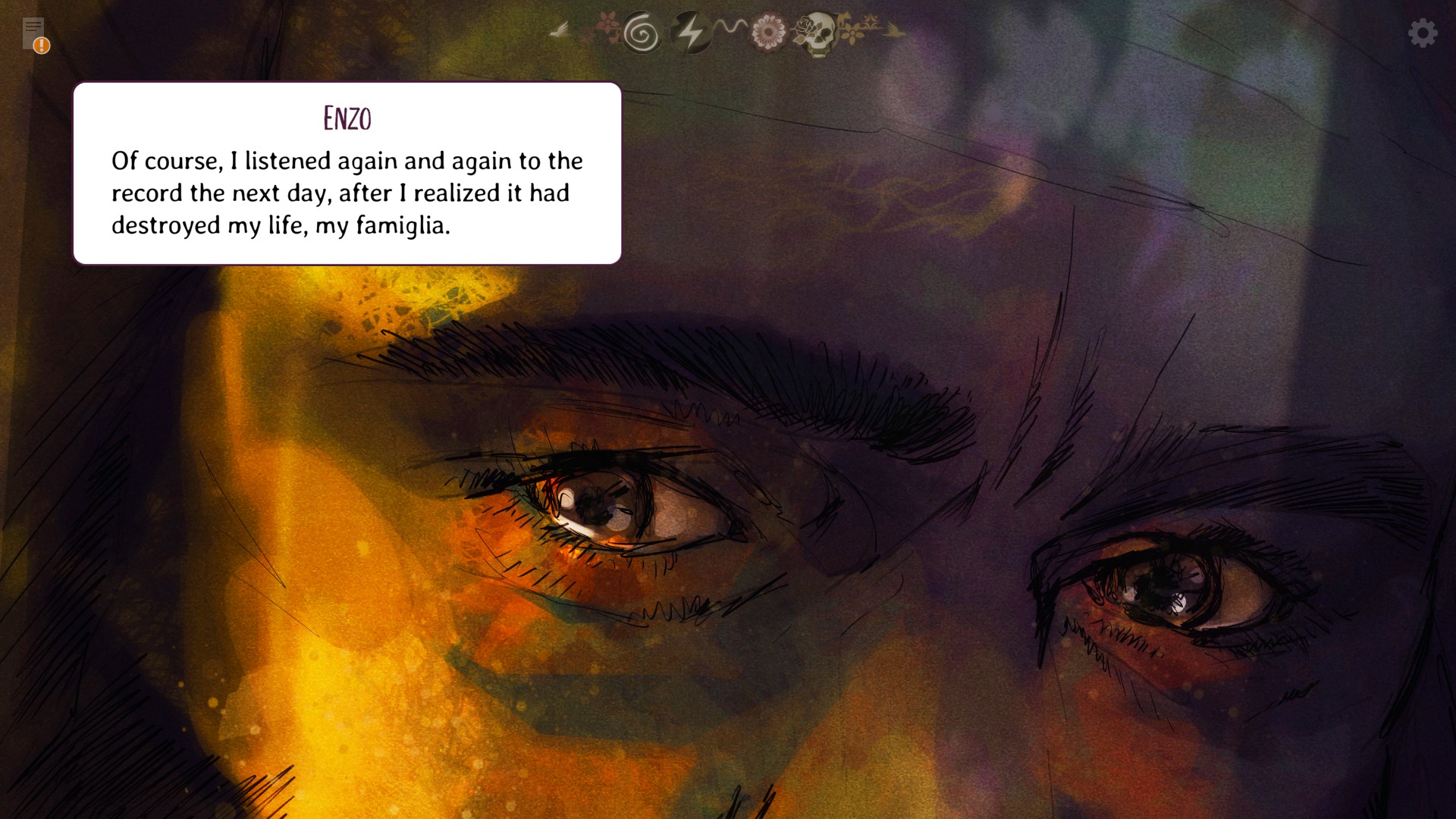There are moments, he says (and he doesn’t put this forward as his own observation, but an ancient one independently noted by many others throughout history, across many cultures). There are moments of choice. Of course, every moment is one of choice, each milisecond the genesis of infinite diverging possibilities. But these ones are the ones we recognise as pivotal, the ones where our future was altered not by meaningless chaos and circumstance but by our own decision. Last year I applied for a job. I’d potentially be dead by now if I hadn’t. I was working in London, travelling with hundreds of strangers, dealing with many more face to face, having little choice but to put up with the usual things the public do to those they consider inferior. Handling money and endlessly manipulated objects that are never cleaned. I know people still working in those places. There have been deaths. I’ve been resolutely locked down since early March because with my illnesses, yeah, it ain’t a good outlook. But I left a lot behind. In particular, I let down someone I loved. It was probably going to happen anyway. But one thing that particularly hurt in our last conversation was that she didn’t believe I wanted her to come with me. That I was, I don’t know, making it up. It was a mess. We were probably never going to work together for long. But I often wonder how different things would have been if I’d stayed where I was. Across The Grooves is a game about feelings like this. I don’t think its story, in itself, does quite enough to dig into them, but it’s a thought-provoking game, and its version of time travel is an interesting one, and I think intentionally prone to messing with people. To taunting us with our regrets. The premise is that a young woman named Alice receives a unique vinyl record in the post, from an ex-boyfriend she broke up with three years earlier. When she listens to it she relives the last time they saw each other. When the music stops, she goes about the rest of her day only to realise that her reality is suddenly not the one she remembers. Something in her past has changed. She sets about tracking down the boyfriend, Ulysse, to get an explanation, leaving her Bordeaux flat and travelling to Paris, then London, for a few days of sleuthing. Ulysse was a serious music dork, so pretty much all his friends are too, and Alice’s investigation mostly comes down to talking to other music dorks about either him, or the record itself. Whatever choices you make, you’ll eventually end up a different person. Which sounds incredibly vague and universal, because I kind of don’t want to give away what happens. Most of the decisions are minor, and the biggest differences come from who you decide to spend your time with. Probably the most agonising decision for me was whether to cancel a plan to reconnect with an old friend so that I could find out whether that woman really was flirting with me. Look, it’s been a long time alright? Plus she had a lead on where Ulysse went. There are quite a few decisions on who to talk to, and crucially, whether to trust them with information about the record. It turns out to be a legend among music nerds and record collectors, connected to all sorts of myths and rumours about classic rock and blues musicians. Relatedly, there’s a sense of lurking threat, and I wasn’t far off finishing the story before I’d decided whether the hint of darkness in it was going to turn ugly. But whatever you do, the story goes in the same direction. You’ll visit most of the same locations in the same order. Across The Grooves isn’t a dating game by any means, but it echoes a tradition of dating VNs by making your choice of companions the biggest decider of your fate. There’s a sense of inevitability, of momentum to the way things will go, but along that way, you might get to choose to have a good time with some new people. You can never get away from yourself, but you can change your company. What it does best is not friendship per sé, but meeting people. Whoever you meet, you’ll spend most nights of its story enjoying what William Nicholson called the Great Enough. The people you meet help you out with information, but it’s their company that matters. One night in particular really captures the mood of those rare occasions where I’ve gone out for a night, and fallen in with random good people. Those times when you have a warm and deep and sincere night without worrying about money or work or where you’ll be living in a month. During my first playthrough, I noted that even if I didn’t resolve the story that time, I’d had a nice time. Travelling around, buying new clothes for the road in charity shops, some new looks, and meeting some warm and friendly people. I used to be good at stuff like this. A lot of it comes down to the sound design. Across The Grooves does some excellent work with ambience - it absolutely should be played with headphones - be it a crackling fireplace, a simple clock, or some crickets that had me recalling a faint childhood memory of tough, scrubby grass poking through sand on a hot night somewhere in Spain. ASMR fans would probably get a kick out of it. Ironically, its biggest problem is that the music you hear in the scenes where you play the Record isn’t very good. The tunes are okay, but the lyrics are prosaic and awkward, suffering badly from translation and mispronunciation. They would have worked better in French, when my idiot monoglot mind could at least have painted a profundity or pathos to the lyrics that they don’t have. I also get very little sense of what Ulysse is like, beyond being a music bore and a basically sound guy. I have little reason to feel loyal to him. I feel bad for him, and for the loss of the life he once had with Alice. It feels cold and cruel to have so little loyalty to him given their obvious bond, but how can I not? He is a stranger to me, and hasn’t been part of Alice’s life for years. I very much wanted to track him down, but only really out of curiosity. Sure, perhaps I could use the record to try to undo our breakup, but I have little incentive to do so other than a feeling of obligation, which isn’t the healthiest basis for a relationship. But perhaps this is deliberate. The game explicitly points out that by the time the plot kicks off, Alice and Ulysse are different people, having had years apart, living different realities. It brings up an interesting tragedy of the time traveller that I don’t think I’ve seen before. How do you acknowledge that you had something wonderful together, but thanks to someone’s meddling in time, it wasn’t really you, so why should you be beholden to a different reality? Unless you believe in some childish ’the one’ concept of fate (and the game doesn’t really push this beyond people who listen to the record tending to bump into each other uncannily often. And even this is the opinion of one man, and everyone in the game moves in the same relatively narrow musical circles, most notably in London, where apparently one can make a comfortable living working in a shop and still keep your internal organs), you’re the alternative reality to them now. It’s not you that they know. You’re the mirror universe character who only gets visited for one episode, only in this story. But in this system, there’s no switching back. The original is gone forever. You can replay over and over, but you only get one save. That’s an aspect that has really sat in my head. In most time travel fiction where a change to the past has altered the present, the plot is about ‘correcting’ it, but in Across The Grooves, you don’t truly go back in time. You almost teleport. For a minute or two you can change things, and then the music stops and you’re back in the present, with any changes to the intervening period made manifest. But you have no memory of them. You don’t even get to choose what moment in your past it takes you to. You’re kinda throwing the dice every time and hoping things work out better, but even then you’ll have no memory of the intervening years. Would even a perfect life be worth it if you weren’t really there for most of the journey? The record isn’t apparently evil or corrupting, but based on the stories of people you meet, it tends to drive listeners to unhappiness. Humans are innately fickle, and repeated listening almost inevitably leads to chasing an impossible ideal. I can see how a person could drive themselves mad with dissatisfaction. Seeing my own alternative timelines was already a thought I had often. It’s my own vision of an afterlife in fact, a sort of endless replaying of all your possible lives that would function as heaven and hell together. Several people you (potentially) meet share stories that imply that there are some things you just can’t change, that whatever decisions you made, some things were just never going to happen. The people you meet who obsessively chase the record, try to harness its power and perfect its use, are the closest things to villains in the game (and even they are resolutely non-violent, a touch of characterisation I found surprisingly impressive). There is no original timeline, no “real” you, no “true” ending. The funny thing is that ultimately, time travel or not, that’s all that we’re left with. Sooner or later, we have to accept that we’ve done what we can, made the changes we could at the times that were available to us. You could keep obsessively meddling, trying to find the perfect sequence of actions to get things just right. But then the next thing you know you’ve spent your whole life trying to fix something you should probably have just let go. Alice is left with the latest version of reality, and any changes you make just override the previous ones. You might luck into improved circumstances, but it will never be exactly how you want it. There’ll always be some flaw. Sooner or later, you have to accept that you can only ever travel one path, and you might as well follow it to the end. The game itself isn’t as deeply philosophical or introspective as I’m probably making it sound. There’s every possibility that if I happened to be playing Minecraft right now, I’d somehow connect all my feelings to that instead. We all bring our circumstances to the things we evaluate. As a critic, be it professionally or just recommending something to a friend, there’s a myth that you’re supposed to be objective. That’s obviously bollocks but it is important to be self-aware, to know when you just plain like something, or you’re connecting to something more than you ordinarily would because the random unfavouring chance of the universe has made it feel relevant to your circumstances. So I’m in danger of overrating Across The Grooves. It’s fairly short, and at only a couple of hours long, you could dig up all its alternative scenes and endings in a long afternoon. It’s more linear and structurally simple than I’d expected, and I was definitely expecting more from the main music. But while it hasn’t truly touched me as deeply as Eliza or Watch Me Jump, it’s given me an unusual angle on time travel and a lot of feelings and thoughts to process. It’s even helped me a little, I think. There are some things that were probably always going to happen, and the only real choice you have isn’t how to fix them, but to either make yourself miserable wondering what you could have done better, or try to salvage a future from the consequences you were left with. I’m glad I got to play it.









